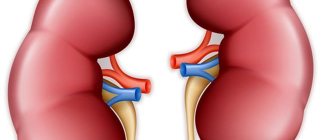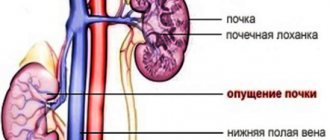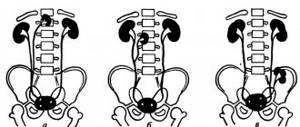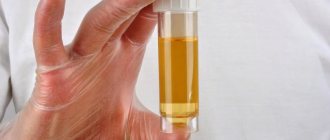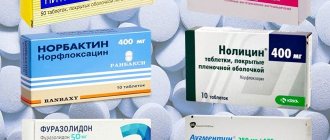Pyelonephritis is a very insidious kidney disease that can occur in both adults and young children. It is dangerous because it is often asymptomatic, which is why the patient is unaware of the presence of the disease. Meanwhile, the pathology gradually develops into a chronic form, which is very difficult to combat. However, modern medicine does not stand still, and today there are a lot of medicines that can be used to get rid of kidney pyelonephritis in the shortest possible time.
What is step therapy
Antibiotics prescribed for pyelonephritis can be used in various forms: orally, infusion, or intravenously.
If in outpatient urological practice it is quite possible to take drugs orally, in complicated forms of pyelonephritis it is preferable to administer antibacterial drugs intravenously, for a more rapid development of the therapeutic effect and increased bioavailability.
After feeling better and clinical manifestations disappearing, the patient is transferred to oral administration. In most cases, this occurs within 5–7 days from the start of treatment. The duration of therapy for this form of pyelonephritis is 10-14 days, but it is possible to extend the course to 21 days.
Sometimes patients ask the question: “Can pyelonephritis be cured without antibiotics?” Perhaps a fatal outcome did not occur in some patients, but the process would become chronic (transition to a chronic form with frequent relapses) would be ensured. In addition, we should not forget about such dangerous complications of pyelonephritis as bacteriotoxic shock, pyonephrosis, renal carbuncle, and apostematous pyelonephritis. These conditions in urology are urgent, requiring immediate response, and, unfortunately, the survival rate in these cases is not 100%.
Therefore, experimenting on yourself, given the availability of all the necessary means in modern urology, is, to say the least, unreasonable.
Features of therapy in women
Most often, women are susceptible to inflammatory kidney diseases, in particular pyelonephritis.
Sharp pain when urinating and a constant urge to empty the bladder, a general deterioration in health and constant pain in the lower back - these symptoms were experienced by almost every representative of the fairer sex who had already entered childbearing age.
Pyelonephritis in women can lead to a number of extremely unpleasant and dangerous diseases of the female reproductive system.
Therefore, it is important to understand that self-medication with antibiotics may not only not lead to the expected result, but can also lead to additional health problems.
The main criterion for the successful fight against inflammation in the kidneys will be complete control by specialists, as well as comprehensive treatment. To prevent pyelonephritis in women from developing into other dangerous and even fatal diseases, such as cancer, you must unquestioningly follow the recommendations of your doctor.
Only a qualified specialist will help you select the appropriate group of antibiotics to minimize side effects. In addition, only under the supervision of a specialist can you take the entire course of medications to avoid the disease becoming chronic.
The doctor will also prescribe a special diet, which you cannot do without during treatment.
Pregnant women are a special group of patients, since gentle treatment methods have to be selected for them. Even in this case, the doctor will prescribe antibiotics, since, despite their “harm,” the consequences of the disease itself can be much more terrible for the expectant mother and baby.
If symptoms of kidney inflammation appear during the first trimester of pregnancy, the doctor will prescribe the use of antibiotics such as ampicillin or oxacillin. At later stages - in the second and third trimester, gentamicilin or cephalosporin are indicated for use.
During this period, drugs of the tetracycline, chloramphenicol and streptomycin series, and other highly toxic drugs are strictly prohibited.
In addition to antibiotics, pregnant women are prescribed a number of drugs that are aimed at preventive measures, as well as painkillers and antispasmodics.
What groups of antibiotics are used for kidney inflammation?
The main part of the treatment of kidney pyelonephritis is taking antibacterial drugs, since in most cases the cause of this disease is bacterial infection. Medicines in this group are prescribed by a qualified doctor after receiving the results of the patient’s laboratory tests.
- Cephalosporins - these drugs have a detrimental effect on most known strains of bacterial infection. However, they are considered relatively safe medications and do not have a toxic effect on the human body. For kidney pyelonephritis, the following drugs are prescribed - Cefaclor, Tamycin, Suprax, Cifran, Cephalexin.
- Penicillins - their negative effects apply to gram-positive and gram-negative types of microorganisms. Medicines of this series do not impede the functioning of the urinary tract, and therefore can be safely prescribed even to pregnant women. The following drugs will help cure the pathology: Amoxicillin, Amoxiclav, Ampicillin.
- Aminoglycosides - similar drugs are used to treat acute pyelonephritis. They have a very strong antibacterial effect and quickly destroy pathogenic microflora. Their only disadvantage is increased nephrotoxicity. Since aminoglycosides have a negative effect on the kidneys, medications in this group should not be prescribed to elderly patients and pregnant women. The names of the drugs are Gentamicin, Netilmicin and Amikacin.
- Macrolides - effectively eliminate gram-positive infections and chlamydia. Particular attention should be paid to the fact that these antibacterial agents are recognized as the safest of all listed. It is recommended to take Tetraolean, Roxithromycin, Vilprafen, Azithromycin for pyelonephritis.
- Carbapenems are representatives of antibiotics that belong to drugs with a wide range of bactericidal effects. Imipinem is considered the most modern and popular medicine of this group.
- Lincosamines - these drugs do an excellent job of destroying coccal microorganisms (streptococcus, staphylococcus). It is for this reason that they are often taken in combination with stronger antibiotics - aminoglycosides. The most well-known drugs in the series are Lincomycin and Clindamycin.
- Fluoroquinolones are well suited for the treatment of acute forms of kidney inflammation. Thanks to the power of these medications, the patient’s recovery occurs very quickly, and within a few days the unpleasant symptoms of the disease disappear. Names of group representatives: Levofloxacin, Nolitsin, Moxifloxacin.
So, what antibiotics are used for pyelonephritis?
The drugs of choice are fluoroquinolones.
Ciprofloxacin 500 mg 2 times a day, duration of treatment 10–12 days.
Levofloxacin (Floracid, Glevo) 500 mg once a day, duration 10 days. Norfloxacin (Nolicin, Norbactin) 400 mg 2 times a day for 10-14 days.
Ofloxacin 400 mg 2 times a day, duration 10 days (in low-weight patients a dosage of 200 mg 2 times a day is possible).
Alternative Medicines
If for some reason the prescription of the above antibiotics for pyelonephritis is impossible, the regimen includes drugs from the group of 2-3 generation cephalosporins, for example: Cefuroxime, Cefixime.
Aminopenicillins: Amoxicillin/clavulanic acid.
What medications are prescribed for this pathology?
Needless to say, treatment of this disease should be carried out under the strict supervision of a doctor. Most often, treatment of pyelonephritis begins with prescribing a course of antibiotics, which mainly fight the cause of inflammation.
There are several groups of drugs used:
- The main antibiotics are Amoxicillin and Penicillin. The group of aminopenicillins is well tolerated by patients, and therefore shows good results, even in pregnant women. They destroy cells affected by pathogenic bacteria during their division. They are used when a purulent infection is localized in a specific place.
- Intramuscular injections of a wide profile - Cephalexin, Cefaclor. Cephalosporin drugs are low-toxic and therefore have virtually no side effects. The course lasts up to 2 weeks, after which complete recovery is achieved. It is used in cases where antibiotics of the aminopenicillin group do not cope due to the fact that bacteria have developed immunity to them.
- Aminoglycoside antibiotics - Amikacin, Gentamicin. This group of drugs has a high level of nephrotoxicity, as a result of which hearing deteriorates, so it is not prescribed to patients of retirement age, or to pregnant women. Nevertheless, this remedy is quite powerful, so it is used in special cases - with complicated forms. The course requires a break of 1 year. The substance contained in these antibiotics penetrates the bacterium and destroys it from the inside.
- Fluoroquinolones - Levoflonsacin, Ofloxacin. These injections are prescribed for acute forms of the disease. Contraindicated for pregnant and lactating women, as well as children under 16 years of age. The active substance of this antibiotic destabilizes the enzyme DNA gyrase of bacteria, which leads to inhibition of their activity and death.
Antibiotics for acute complicated pyelonephritis or hospital-acquired kidney infection
For the treatment of acute complicated pyelonephritis, fluoroquinolones (Ciprofloxacin, Levofloxacin, Pefloxacin, Ofloxacin) are prescribed, but the intravenous route of administration is used, i.e. These antibiotics for pyelonephritis also exist in injections.
Cephalosporins, for example, Ceftriaxone 1.0 g 2 times a day, course 10 days, Ceftazidime 1-2 g 3 times a day intravenously, etc.
Aminoglycosides: Amikacin 10-15 mcg per 1 kg per day – 2-3 times.
In severe cases, a combination of Aminoglycoside Fluoroquinolone or Cephalosporin Aminoglycoside is possible.
In the acute form, the doctor recommends the use of medications from the following groups:
- antibiotics;
- chemical antibacterial agents;
- nitrofurans;
- antihistamines;
- cephalosporins;
- aminoglycosides;
- tetracyclines.
Antibacterial drugs are the basis of drug treatment. They are applied in a course of 7-14 days. Medicines are taken orally, injected into a muscle or vein.
Table 2. Recommended antibiotics.
| A drug | Description | Price |
| An antimicrobial drug that has a bactericidal effect. Suppresses DNA gyrase and inhibits bacterial DNA synthesis. | From 18 rubles. |
| Cefuroxime | Cephalosporin antibiotic agent. | 96 rubles. |
| Broad-spectrum aminoglycoside antibiotic. Has a bactericidal effect. | 29-184 rubles. |
| 4th generation cephalosporin antibiotic drug for parenteral use. | 111 rubles. |
| Antibiotic agent of the carbapenem group. | 1500 rubles. |
The main drugs in this group are presented in the table.
| A drug | Description | Price |
| Antimicrobial agent, nitrofuran derivative. It is a powerful uroantiseptic. | 164 rubles. |
| Antimicrobial drug. It is a derivative of 8-hydroxyquinoline. The mechanism of action is associated with selective inhibition of bacterial DNA synthesis. | 99 rubles. |
| The drug has pronounced antibacterial activity. | 106 rubles. |
| The drug belongs to the chylon group. Has a bactericidal effect. | 282 rubles. |
| A combined antimicrobial drug consisting of sulfamethoxazole and trimethoprim. | 38 rubles. |
Drugs in this group help destroy pathogenic microorganisms. They also slow down the process of their reproduction.
Often a woman is prescribed the use of 5-NOK. This is an antimicrobial drug with a wide spectrum of effects. Its cost is 235 rubles.
One of the most effective drugs in this group is Furadonin.
The price of this drug varies from 94 to 157 rubles
These drugs are prescribed if pyelonephritis is accompanied by allergic reactions.
| Medicine | Description | Price |
| Histamine H1 receptor blocker. May cause side effects. | 158-198 rubles. |
| It has an antihistamine and m-anticholinergic effect. | 114 rubles. |
| Selective blocker of peripheral histamine H1 receptors. | 207 rubles. |
Drugs for the treatment of pyelonephritis in women, included in the group of cephalosporins, are intended for injection into a muscle or vein.
| Medicine | Description | Price |
| Antibacterial drug from the group of 3rd generation cephalosporins. | 50-80 rubles. |
| Semi-synthetic cephalosporin antibiotic agent. | 102 rubles. |
| A drug from the fluoroquinolone group that has a bactericidal effect. | 281 rubles. |
The most effective drug in this group is Tsifran.
The price of Tsifran varies from 51 to 315 rubles
Most often, the doctor prescribes the use of Amikacin
Medicines in this group are used for complicated pyelonephritis. They help well if the causative agent of the disease is Pseudomonas aeruginosa.
Medicines are poorly absorbed from the gastrointestinal tract, so they are often prescribed parenterally. The strongest and safest drug in this group is Amikacin.
These medications are prescribed only against the background of individual intolerance to antibiotic drugs of other groups.
Table 6. The most effective tetracyclines.
| A drug | Description | Price |
| A semi-synthetic antibiotic with a bacteriostatic effect. | From 20 rubles. |
| The drug inhibits protein synthesis of microorganisms. | From 44 rubles. |
Vascular agents
How to treat pyelonephritis? To treat the acute stage of this pathology, it is recommended to use drugs that improve blood flow in the renal vessels. To make treatment more effective, even before taking antibiotics, patients are prescribed vascular medications - their goal is to normalize kidney function. Drugs in this group increase blood circulation in the tissues of these organs and reduce the likelihood of their necrosis.
Vascular medications for pyelonephritis:
- Curantil – has pronounced antiplatelet properties (reduces the adhesion of platelets and red blood cells). It is produced in the form of tablets, each of which contains 25 mg of active substance.
- Trental - improves metabolic processes in kidney tissue. It is used mainly in the inpatient department of a hospital, as it is administered by drip in physiological solution - 5 ml/20 mg of medication and 400 ml of solvent.
Therapy for such a disease should be carried out under the supervision of an appropriate specialist. To treat acute inflammation, the doctor will suggest that you go to the hospital. In case of exacerbation of the chronic form of the disease, hospitalization can be avoided. Treatment of pyelonephritis at home is carried out according to a special scheme drawn up by a nephrologist.
The use of vascular agents and antibiotics helps to quickly eliminate pathological disorders and destroy pathogenic microflora. As a result, signs of inflammation disappear within several days. Correct and timely treatment of the disease guarantees a long-term absence of exacerbations and reduces the likelihood of developing renal failure.
Cautions for self-medication
Before treating the disease yourself, you need to determine the cause of the inflammation. At the first signs of pyelonephritis, contact a urologist. After examination and examination, the doctor will select suitable medications for:
- destroying the infection;
- pain relief;
- restoration of urination;
- strengthening the immune system;
- normalization of kidney functions.
Features of therapy and duration of medication depend on the nature of the inflammation and the causative agent of the infection.
Only a doctor can prescribe the correct treatment. Treatment with antibiotics takes 4-8 weeks, after which uroseptics are prescribed. To monitor the effectiveness of therapy, tests are periodically performed - a clinical blood test, urine culture. Competent treatment reduces the risk of complications and the transition of pyelonephritis to a sluggish form.
What other effective drugs exist for the treatment of pyelonephritis?
Everyone understands that for the treatment of gestational pyelonephritis, an antibacterial drug is needed, the positive effect of which exceeds all possible risks, there would be no negative impact on the development of pregnancy, and in general, side effects would be minimized.
The doctor decides individually how many days to take antibiotics.
As a starting treatment in pregnant women, the drug of choice is amoxicillin/clavulanic acid (protected aminopenicillins) at a dosage of 1.5–3 g per day or orally 500 mg 2–3 times a day, for a course of 7–10 days.
Cephalosporins 2-3 generations (Ceftriaxone 0.5 g 2 times a day or 1.0 g per day intravenously or intramuscularly.
Fluoroquinolones, tetracyclines, sulfonamides are not used to treat pyelonephritis in pregnant women and children.
In children, as well as in pregnant women, the drug of choice is an antibiotic from the group of protected aminopenicillins; the dosage is calculated according to age and weight.
In complicated cases, treatment with Ceftriaxone is also possible, 250–500 mg 2 times a day intramuscularly, the duration of the course depends on the severity of the condition.
Uroseptics
As we said above, a multicomponent regimen is used to treat pyelonephritis.
After antibiotic therapy, the use of uroseptics is justified.
Palin, Pimidel, Furomag, Furadonin, Nitroxoline, 5-NOK.
As first-line drugs for acute pyelonephritis, they are ineffective, but as an additional step, after adequate treatment with antibacterial agents, they work well.
It is justified to take uroseptics in the autumn-spring period to prevent relapse, since antibiotics are not used for chronic pyelonephritis. Typically, drugs from this group are prescribed in courses of 10 days.
Immunomodulators
The work of the immune system plays a significant role in resisting microorganisms that cause inflammation of the genitourinary organs. If the immune system had worked at the proper level, primary pyelonephritis may not have had time to develop. This means that the goal of immunotherapy is to improve the body’s immune response to pathogens.
For this purpose, the following drugs are prescribed: Genferon, Panavir, Viferon, Kipferon, Cycloferon, etc.
Additionally, taking multivitamins with microelements is justified.
Treatment of acute pyelonephritis with antibiotics can be complicated by candidiasis (thrush), so we must not forget about antifungal drugs: Diflucan, Flucostat, Pimafucin, Nystatin, etc.
general information
Pyelonephritis is a common kidney infection caused by bacteria. Inflammation spreads to the pelvis, calyces and renal parenchyma. The disease often occurs in young children, which is associated with structural features of the genitourinary system or with congenital pathologies. The risk group also includes:
- women during pregnancy;
- girls and women who are sexually active;
- girls under 7 years old;
- older men;
- men diagnosed with prostate adenoma.
Incorrect or inappropriately started antibacterial therapy leads to the transition of the disease from an acute to a chronic form. Sometimes late seeking medical help leads to kidney dysfunction, and in rare cases to necrosis. The main symptoms of pyelonephritis are body temperature of 39 degrees and above, frequent urination and general deterioration of the condition. The duration of the disease depends on the form and manifestations of the disease. The duration of treatment in a hospital is 30 days.
Anti-inflammatory medications and analgesics
The doctor is obliged to take into account the degree of kidney damage and the presence of a purulent process.
Drugs for the treatment of pyelonephritis in women are selected taking into account the symptoms and form of the disease. Factors such as the cause of the disease, the degree of kidney damage, and the presence of a purulent process are taken into account.
Instructions for drug treatment are as follows:
- Elimination of the provoking factor.
- Elimination of the infectious component.
- Detoxification of the body.
- Strengthening the immune system.
- Stopping relapses.
In the complex treatment of pyelonephritis with medications, in addition to antibacterial agents, anti-inflammatory therapy is used. In order to reduce the severity of inflammation and as an anti-fever drug, they resort to the use of non-steroidal anti-inflammatory drugs. Their mechanism of action is to block the production of serotonin and prostaglandin, which provoke inflammation.
The doctor also prescribes medications for pyelonephritis that can relieve pain and restore kidney function. Antispasmodics are used for this:
- No-spa - does not affect the central nervous system, helps weaken tone and dilate blood vessels.
- Baralgin - tablets consist of metamizole and two antispasmodics - phenylpiverine and pitofenone. The medicine effectively eliminates pain and smooth muscle spasms.
What to take for the symptomatic treatment of pyelonephritis? NSAIDs will help relieve pain and reduce inflammation. These products are easy to purchase at any pharmacy and are sold in the form of tablets and oral drops.
Nonsteroidal anti-inflammatory drugs (NSAIDs) – the mechanism of their beneficial effects is associated with blocking mediators of inflammatory reactions. The active substance of such medications reduces the synthesis of prostaglandin and serotonin in the kidney tissues, due to which the unpleasant symptoms of the pathology gradually disappear. For pyelonephritis, it is recommended to take the NSAIDs listed below.
- Paracetamol is a good and affordable anti-inflammatory drug that is familiar to every patient. When taken in large doses, this medicine for pyelonephritis also has an analgesic effect.
- Ibuprofen – taking this medication is necessary in situations where it is necessary to create an increased concentration of the active substance in the patient’s blood. As a result of using the drug, its maximum amount in the bloodstream is achieved after 5 hours.
- Diclofenac is a kidney medicine used in the form of suppositories and tablets. This medication can also be administered intramuscularly in an amount of 75 mg per day. But the use of Diclofenac should not be continued for more than 12-14 days due to the adverse effects on the digestive system.
- Indomethacin - this drug is also classified as an NSAID. In addition to a pronounced anti-inflammatory effect, it also has an analgesic effect on the human body. It is often prescribed for signs of renal colic, as it has good diuretic properties.
If non-steroidal drugs do not help eliminate pain, it is advisable to use medications with a stronger analgesic effect. From the list of analgesics, medications based on metamizole are recommended to take for pyelonephritis.
- Baralgin is a combination drug based on two antispasmodic substances (pitofenone and phenylpiverine) and metamizole. It perfectly anesthetizes the affected area and relieves spasm of the muscular apparatus of the kidney.
- Novalgin - reduces pain and discomfort during the development of renal colic. Effectively and permanently blocks pain impulses, expands the lumen of the urethra.
This group of drugs includes drugs that affect the condition of blood vessels and smooth muscles. If an acute inflammatory process develops in the affected area, a spasm occurs - the lumen of the blood vessels narrows, the muscles contract, pain and discomfort appear. This phenomenon can be eliminated by antispasmodic drugs - these are tablets for pyelonephritis No-shpa, Spazmalgon, Papaverine, Drotaverine.
When taking these or other similar medications, you should be aware of the possibility of adverse reactions. After using antispasmodics, the patient may experience the following symptoms:
- Allergic urticaria (skin rashes).
- Vomiting or nausea.
- A sharp decrease in blood pressure.
Such drugs for pyelonephritis are prescribed only if the patient does not have severe heart disease, hypersensitivity to the components of the drug and galactose intolerance. Their use in childhood is not recommended.
Drugs for pyelonephritis and their features
• diabetes mellitus, • benign prostatic hyperplasia in men, • atherosclerotic processes, including renal vessels, • arterial hypertension.
Considering the duration of inflammation in the kidneys, it is possible to assume in advance the multiresistance of the microbial flora, the tendency of the disease to frequent exacerbations and a more severe course.
For older patients, the antibacterial drug is selected taking into account the functional capacity of the kidneys and concomitant diseases.
Clinical cure with incomplete laboratory remission is allowed (i.e., the presence of leukocytes and bacteria in urine tests is acceptable).
Nitrofurans, Aminoglycosides, and Polymyxins are not prescribed in the elderly.
Summing up the review of antibacterial drugs, we note that the best antibiotic for pyelonephritis is a well-chosen drug that will help you.
It is better not to take on this matter on your own, otherwise the harm caused to the body may far outweigh the benefits.
Antibiotic treatment of pyelonephritis in men and women is not fundamentally different. Sometimes patients ask to be prescribed “latest generation antibiotics for kidney pyelonephritis.” This is a completely unreasonable request, there are drugs whose use is justified for the treatment of serious complications (peritonitis, urosepsis, etc.), but are in no way applicable for uncomplicated forms of inflammation in the kidneys.
How to treat kidney pyelonephritis? Recommended medications include antibiotics, drugs with antimicrobial activity, anti-inflammatory drugs and immunostimulants. As additional measures, herbal and homeopathic complexes are used, as well as drugs whose effectiveness is aimed at improving local tissue trophism.
1. Respiratory fluoroquinolones - only first and second generation antibiotics are used. The active substances included in the preparations are low toxic to the human body and have a long half-life:
- "Tsiprolet"
- "Tsiprobay"
- "Flexid"
During pregnancy and childhood, pyelonephritis is also treated with medications. The doctor prescribes drugs that have a gentle effect on the body and do not have a negative effect on the fetus. The main medications for kidney pyelonephritis in women during pregnancy are Oxacillin and Ampicillin.
The course of treatment for pregnant women and children is 10-14 days. Antibacterial therapy is necessarily supplemented with antispasmodics – “Baralgin”, “No-shpa” and antimicrobial agents – “5-NOK”. To alleviate the symptoms of the disease, it is recommended to take sedatives, vitamin complexes and desensitizers - Tavegil and Diazolin.
To increase the effectiveness of antibacterial drugs, medications are prescribed that accelerate blood circulation in the kidney area. 10-day therapy is enough, after which the result will be noticeable.
Diuretics are required to remove fluid from the body. Otherwise, stagnation in the kidney area is possible, which will only aggravate the course of the pathological process. Surgical therapy for pyelonephritis is carried out only when there are inflammatory processes that develop against the background of blockage of the ureter with a stone. As a rule, operations account for only 20-25% of cases.
In case of renal inflammation, antibacterial therapy is the main component, because most often the pathology is provoked by pathogenic microorganisms. Antibacterial agents in the form of tablets are presented in several groups, depending on the therapeutic effect on a particular pathogen. The appointment can only be made by a doctor after laboratory tests based on the nature of the disease and the type of provoking bacteria.
Antibacterial drugs are divided into the following subgroups:
- Third generation cephalosporins. The tablets are characterized by low toxicity. Prescribed to prevent the development of a purulent form of pyelonephritis. The active components of the drug allow you to block the action of many forms of microorganisms. Most often used:
- Cephalexin is well tolerated and has minimal side effects. Sensitivity to tablets of streptococci, staphylococci, salmonella, and E. coli is very high. The drug is not approved for use by children under three years of age, pregnant or lactating women.
- Zinnat - active components allow the drug to be used by pregnant women and during breastfeeding.
- Penicillins are most often prescribed during pregnancy. Under normal conditions, they are rarely used as a leading agent because they are sensitive to enzymes produced by some bacteria. Today, there are drugs containing clavulanic acid, which protects penicillin from destruction. The most common tablets:
- Amoxiclav - due to the presence of amoxicillin and clavulanic acid, this water-soluble drug is very effective and easily tolerated.
- Flemoklav Solutab is a broad-spectrum antibiotic. Active in the presence of gram-positive and gram-negative bacteria, inhibits the synthesis of their cells. Its use is prohibited for children under 12 years of age and weighing less than 40 kg.
- Fluoroquinolones are known for their bactericidal effect, disrupt the DNA synthesis of pathogens and have a detrimental effect on gram-positive bacteria. Used in the treatment of chronic (Moxifloxacin, Levofloxacin) and acute (Ciprofloxacin, Norfloxacin) forms of pyelonephritis.
- Carbapenems are broad-spectrum antibiotics used for severe forms of bacteremia complicated by sepsis. Tablets are used as a last resort when treatment with other drugs has not brought a positive effect. A well-known representative is Imipenem.
- Quinoline compounds - the most common drug in tablets is Nitroxoline. It is highly effective, low cost and has minimal side effects.
Diuretics
For pyelonephritis, medications with a diuretic effect are used to remove excess fluid from the body. The first symptomatic sign that a diseased kidney is not coping with its functions is the occurrence of severe swelling in the extremities, under the eyes and throughout the body.
If symptoms of an acute form of kidney inflammation appear, it is recommended to take diuretics of synthetic origin - these are Veroshpiron, Furosemide, Diacarb. These drugs are required to be taken in the treatment of all urological diseases.
To eliminate such disorders, it is necessary to use diuretic tablets. Your doctor may recommend such medications to you. For such ailments, it is advised to eat fruits and vegetables that contain large amounts of water - celery, watermelon, cucumbers.
With pyelonephritis, it is important to prevent intoxication of the body due to urinary retention. In this case, diuretics are prescribed that can help quickly drain stagnant urine.
This mobilizes the reserve abilities of the organ. Only a doctor can prescribe the right drug based on the course of the disease, concomitant pathologies and the degree of kidney damage.
The most famous diuretics:
- Renephrine - tablets of plant origin with diuretic, antispasmodic, anti-inflammatory effects;
- Urokran is a natural complex diuretic drug;
- Canephron is a complex herbal remedy with a diuretic, anti-inflammatory and antimicrobial effect, enhancing antibacterial therapy;
- Furosemide is a diuretic tablet, the distinctive feature of which is that it must be taken 2–3 hours before daytime or nighttime sleep;
- Urolesan is a herbal antispasmodic.
One of the reasons for the development of pathology is a decrease in immunity, therefore, in order to increase the body's defenses for pyelonephritis, Methyluracil or Pentoxyl are prescribed. It is also necessary to take ready-made multivitamin complexes (vitamins A, C, E). In case of exacerbation of chronic processes, they are prescribed in high doses.
Herbal remedies
There are herbal-based preparations, the use of which is possible in the absence of an allergic reaction to the components. Some plants have a good diuretic effect and have an anti-inflammatory effect.
Plant-based drugs include Canephron, Cyston, Monurel, and Fitolysin.
Tablets that improve kidney circulation
One of the side effects of the inflammatory process is renal vascular ischemia. Do not forget that it is through the blood that medications and nutrients that are so necessary for recovery are delivered.
To remove manifestations of ischemia, Trental and Pentoxifylline are used.
For a speedy recovery, specialists strive to improve renal blood circulation. For this purpose, tablets are prescribed that prevent blood clotting and improve vascular tone. The need for these drugs arises with prolonged and frequent manifestations of the chronic form of pyelonephritis.
Among the tablets with this effect, Curantil should be noted. It helps to activate blood flow in the kidney tissues and reduces the constricting ability of platelets. Contraindicated in chronic renal failure and low blood pressure.
Another effective drug is Trental. It enriches the cells of the kidney tissue with oxygen and promotes greater stability of red blood cells that carry oxygen to all systems.
Heparin is also often prescribed: it helps reduce the rate of platelet aggregation and improve blood microcirculation. Venoruton prevents capillary permeability and relieves swelling, increases blood flow in the capillaries and the outflow of venous blood from the kidneys.
Herbal remedies
Almost all doctors recommend using natural drugs whenever possible to treat pyelonephritis. Such medications consist of herbal components and have a small number of adverse reactions. They perfectly help eliminate the signs of an acute inflammatory process. It is also recommended to take these medications to prevent exacerbations that often occur with chronic pyelonephritis. Here is a list of herbal preparations widely used for this disease:
- Canephron.
- Cyston.
- Brusniver.
- Phytolysin.
Canephron is a product of a German pharmaceutical company. Has a combined effect. It is based on medicinal plants - lovage, centaury, rosemary, rose hips. It is used for pyelonephritis for therapeutic and prophylactic purposes.
Brusniver - it is called the modern Russian analogue of Canephron. The composition of the medicine includes leaves of string, lingonberry and St. John's wort, and rose hips. In pharmacies you can also find this drug under the name Brusniver-T - in this case, bearberry is also added to the above herbal components.
Video on the topic
About what pyelonephritis is, its symptoms and treatment with antibiotics - everything in the video:
Treatment of pyelonephritis consists of eliminating the causes that contribute to the obstruction of urine outflow. The basis for kidney pyelonephritis is treatment with antibiotics. Drugs for the chronic course of the disease are prescribed based on the results of an antibiotic sensitivity test. The most effective are cephalosporin antibiotics, as well as medications from the uroseptic group.
To prevent repeated relapses, the doctor prescribes a course of immunomodulatory drugs. The prognosis with properly selected therapy and diet is favorable; the course of treatment ranges from one to three months. If conservative therapy does not help, surgical methods are used to restore the outflow of urine.
Herbal medicine or how to treat pyelonephritis with herbs
Considering that pyelonephritis after antibiotics needs further attention, let us turn to the possibilities of nature.
Even our distant ancestors used various plants in the treatment of kidney inflammation, since already in ancient times healers had information about the antimicrobial, anti-inflammatory and diuretic effects of some herbs.
• knotweed, • horsetail, • dill seeds, • bearberry (bear ears), • woolly erva, etc.
You can buy ready-made herbal remedies for the kidneys at the pharmacy, for example, Fitonefrol, Brusniver, and brew them like tea in filter bags.
• Phytolysin, • Urolesan, • Canephron.
When treating pyelonephritis, do not forget about diet: proper nutrition is of great importance.
Uroseptics
Many specialists often introduce uroseptics into the treatment regimen for pyelonephritis.
Many specialists often introduce uroseptics into the treatment regimen for pyelonephritis. For example, nalidixic acid preparations (negram, nevigramon).
These drugs are prescribed to children from 2 years of age. They are effective against gram-positive flora, and they cannot be used in empirical therapy, due to the fact that they do not cover the entire spectrum of pathogens.
Basic principles of therapy
The treatment of different clinical forms of this disease is somewhat different. In case of exacerbation of the chronic stage of this disease, drugs against pyelonephritis are used, which are also used in its acute phase. During periods of remission, a set of therapeutic measures is maximally aimed at preventing relapse of inflammation.
The acute form of the disease is quite severe. The main symptomatic signs of such a disorder are a significant increase in temperature (up to 39-40°C), severe muscle pain, and general weakness. These manifestations always occur in the presence of an infectious-inflammatory process in the body of adults or children.
Over time, these symptoms are accompanied by severe pain in the lumbar area. Usually, unpleasant sensations appear on the right or left - on the affected side, but if bilateral inflammation develops, they can cover the entire lower back. Therefore, drug treatment of pyelonephritis should solve two very important problems:
- eliminate the symptoms of pathology;
- destroy pathogenic pathogens of the infectious process.
The next step is to find out all the causes and factors of such a disease. These measures are necessary in order to prevent the re-development of the disease and prevent its chronicity.
What tablets should I take to treat pyelonephritis? Antispasmodic drugs, NSAIDs, analgesics, and antipyretic drugs will help eliminate the unpleasant manifestations of this disorder. Often, medications with combined effects are used for therapeutic purposes. The root cause of the pathology - harmful microflora - is destroyed using various antibacterial and antimicrobial agents.




